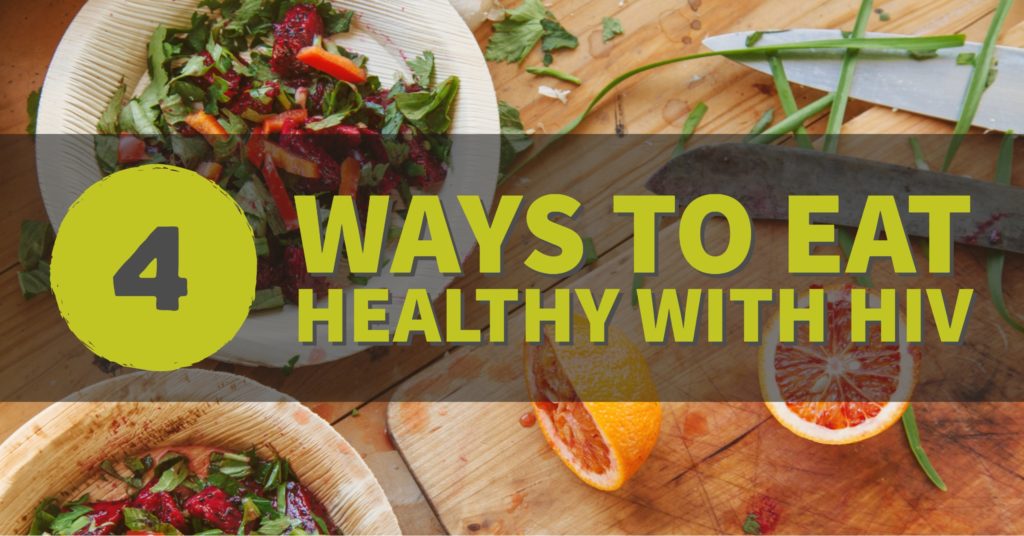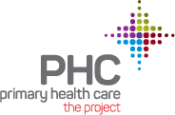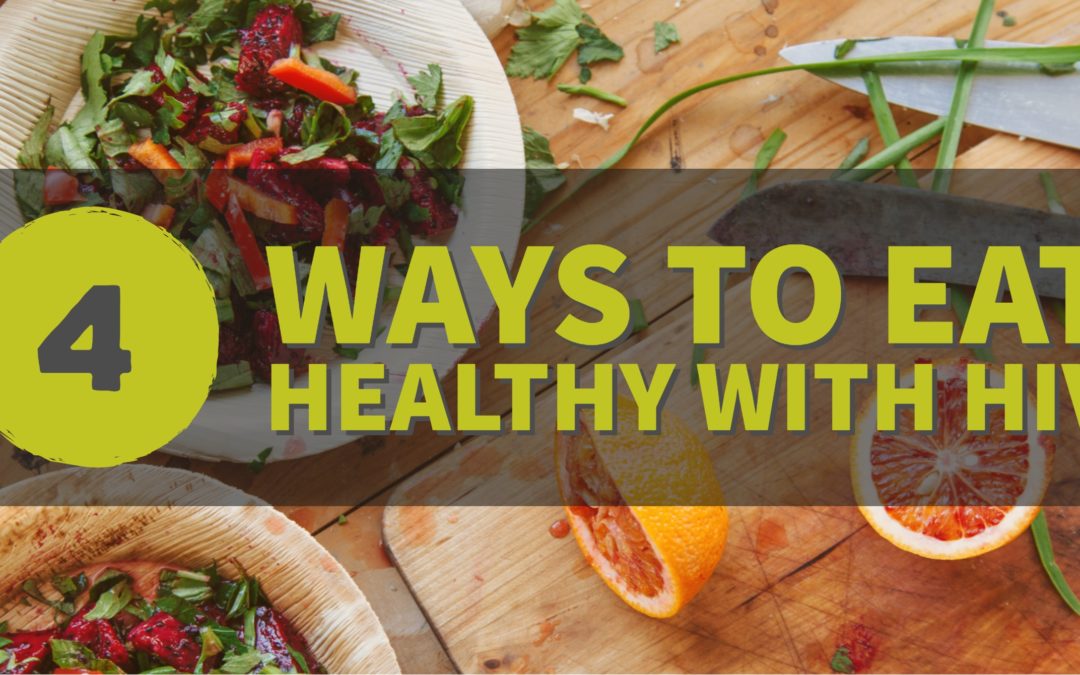For people with HIV, eating nutritious foods and maintaining a healthy weight are important for overall well-being. However, HIV symptoms sometimes interfere with healthy eating.
Follow these tips to eat right with HIV.

Be smart about food safety.
Everyone should avoid foodborne illness, but it’s especially important if your immune system is compromised, as it is by HIV. Avoid foodborne illness by washing your hands before eating or handling food, washing fruits and vegetable thoroughly, making sure meat, fish, eggs, and poultry are thoroughly cooked before eating, using separate cutting boards for a raw and cooked meats, and avoiding foods that may make you sick.
If you think you may have food poisoning, call your doctor right away. To learn more about food safety, visit FoodSafety.gov.
Choose healthy foods.
Eat a healthy diet that contain adequate amounts of protein, fruits, vegetables, whole grains, dairy, legumes, and nuts. Eat from all food groups to maintain muscle (protein) and to have enough energy (carbohydrates and fat). If you need help figuring out what to eat, ask your doctor to refer you to a dietitian.
Eat to maintain a healthy weight.
It’s best to avoid unwanted weight loss. If you don’t have the appetite for larger meals, eat snacks and smaller meals throughout the day. Choose healthier, higher-calorie snacks such as nuts, peanut butter, and protein shakes. Ask your doctor if you should take nutritional supplements.
Adjust your diet to accommodate symptoms.
Avoid spicy foods and high-acid foods such as citrus fruits if you have mouth sores. Choose bland, low-fat, low-fiber foods if you have diarrhea. And if nausea or vomiting occur, eat mild foods and try to stay hydrated. Ask your doctor about taking anti-nausea medications.

